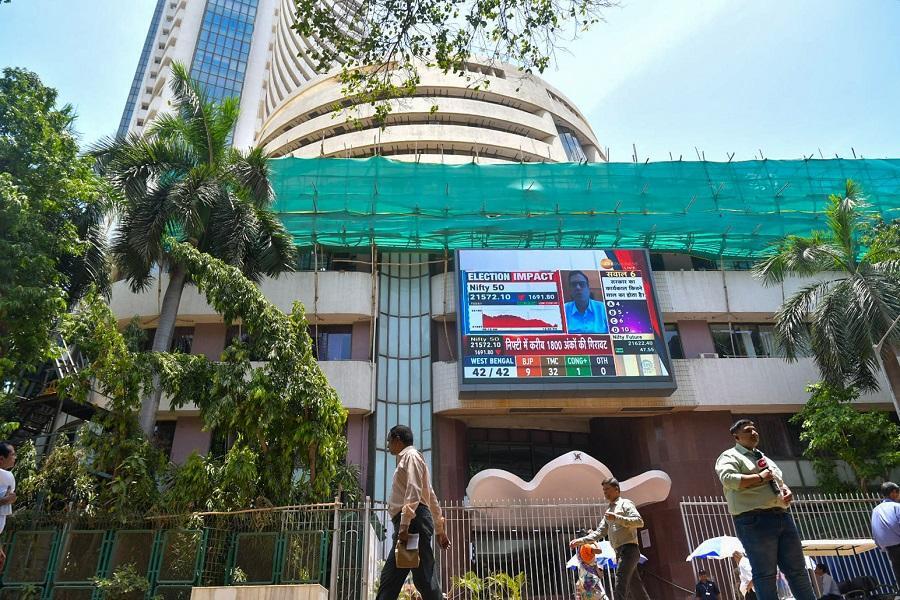
Markets Slip 0.9% on US Tariff Worries, FII Outflows
The Indian benchmark index Sensex fell 0.9 per cent this week, while the Nifty slipped almost the same, falling below the critical 24,400 level and closing at 24,363. The Indian equity market remained in consolidation for another week, a trend that has persisted since early July. Market analysts attribute this decline to growing concerns over US tariffs and outflows from foreign institutional investors (FIIs).
The Sensex, which has been hovering around the 25,000 level for several weeks, finally broke its resistance and slipped below 24,400, a level that is often considered a psychological barrier. The index fell by 222 points or 0.9 per cent to close at 24,363. The Nifty, which is a widely followed benchmark index, also fell by a similar margin, closing at 7,346.
The decline in the market was led by selling in IT and pharmaceutical stocks. The IT sector, which has been a key driver of the market in recent years, fell by 2.5 per cent, led by decliners such as Tata Consultancy Services, Infosys, and HCL Technologies. The pharmaceutical sector also fell by 2.5 per cent, led by decliners such as Sun Pharma, Dr. Reddy’s Laboratories, and Lupin.
The fall in the market was also attributed to outflows from FIIs, who have been selling Indian stocks in recent weeks. According to data from the National Stock Exchange (NSE), FIIs sold shares worth Rs 2,500 crore (approximately $360 million) in the week ended August 23. This is the highest outflow in nearly three months.
Meanwhile, domestic institutional investors (DIIs), who have been supporting the market in recent weeks, continued to buy shares. According to data from the NSE, DIIs bought shares worth Rs 1,500 crore (approximately $215 million) in the week ended August 23.
The decline in the market has also led to a decline in investor sentiment. The market-wide trading volume fell by 10 per cent in the week ended August 23, indicating a lack of investor interest.
Despite the decline, some market analysts are optimistic about the market’s prospects in the long term. “The decline in the market is largely driven by short-term concerns over US tariffs and FII outflows,” said a market analyst. “However, in the long term, the Indian economy is expected to continue to grow at a robust pace, driven by strong domestic demand and a positive external environment.”
The Indian economy has been growing at a rapid pace in recent years, driven by strong domestic demand and a positive external environment. The country’s GDP growth rate has been above 7 per cent for several years, making it one of the fastest-growing major economies in the world.
In conclusion, the Indian equity market slipped 0.9 per cent this week, led by selling in IT and pharmaceutical stocks and outflows from FIIs. The market has been in consolidation mode for several weeks, and the decline is largely driven by short-term concerns over US tariffs and FII outflows. However, in the long term, the Indian economy is expected to continue to grow at a robust pace, making the market an attractive option for investors.






